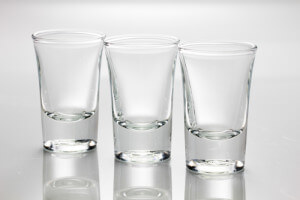People often ask us, is there a Three Strikes Law for DUI in California?
California is famous for a lot of things: The sights at the Golden Gate Bridge, glitz and glamour of Hollywood, delicious coastal wine, the massive stretches of beach, and unfortunately, the antiquated Three Strikes law.
As many Californians know, the Three Strikes sentencing law places offenders behind bars. If a defendant is convicted of a felony, and already has one on record, they face twice the typical prison sentence for that crime. A third conviction results in a mandatory prison sentence of 25 years to life.
Enacted 1994 and adapted in 2012 by Proposition 36, the original law requires 25-life mandatory sentencing for a third felony conviction. This rule applies if the third conviction is “serious” or violent.” The Three Strikes Law for DUI is more lenient today. Before Proposition 36, the law required the mandatory sentencing for any third felony offense. Many people received life imprisonment sentences for significantly less violent crimes, like felony petty theft.
Possibility of the Three Strikes Law for DUI
It’s important to know about the Three Strikes law for DUI in California. It does include DUI convictions. Consequently, if you have a felony DUI conviction on your record, or are facing felony DUI conviction today, it is likely you may face of this incredibly harsh sentencing law.
With that said, there are three scenarios that involve a driver under the influence (DUI):
- Scenario One:Three or more prior DUI convictions in the last 10 years. These three prior offenses can include a combination of DUIs (in any state) and “wet reckless” convictions. Typically a person receives a wet reckless by accepting a plea bargain down from a DUI charge.If you have a collection of three of these offenses on your criminal record, your next DUI arrest will be for felony DUI.
- Scenario Two:If you are driving drunk and injure other people. Felony DUI charges include those for DUI vehicular manslaughter and DUI second-degree murder.
- Scenario Three: You are at risk if you have a prior felony DUI on your criminal record. Unfortunately, California is hard on “repeat offenders.” A charge of felony DUI applies to those who already a felony DUI on their record past. History has shown, this happens regardless of the circumstances surrounding your latest DUI arrest. Whether or not the arrest involves accident or injury does not factor into the decision. Nor does the blood alcohol content (BAC) limit.
Defend Your Freedom
California’s Three Strikes law makes it incredibly important to fight against any and all felony charges. Additionally, fight against any criminal charges that could lead to a felony charge down the road.
With this in mind, hire an experienced DUI attorney in California. It is the most effective way to defend against a DUI charge. Your attorney will argue for your interests both in and out of court. As a matter of fact, California defense attorney Darren Kavinoky employs the best attorneys in Los Angeles.
If you’re facing DUI or other criminal charges, don’t let them get out of hand. We work 24/7 and stay up so you can rest easy.
Call the Kavinoky Law Firm at 1.800.NO.CUFFS for a free consultation.



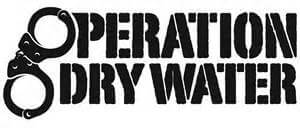
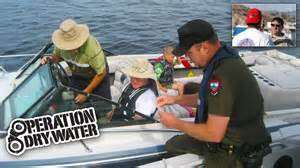 Operation Dry Water launched in 2009 by the
Operation Dry Water launched in 2009 by the 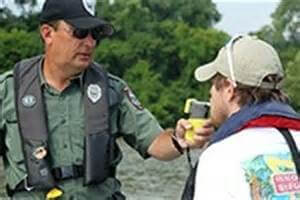 all clear: it is illegal to Boat Under the Influence. The
all clear: it is illegal to Boat Under the Influence. The 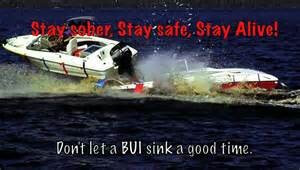 DUI and BUI cases are similar in prosecution. Additionally, while the penalties vary, it is only a slight variation. Under the BUI laws, you can still face fines, possible jail time and alcohol education classes. The one distinction is in the length of time priors can be used to enhance your sentence. Instead of the priorability time being ten years, as in DUI cases, priors only enhance a BUI when the DUI or BUI was committed within the last seven years prior to the offense.
DUI and BUI cases are similar in prosecution. Additionally, while the penalties vary, it is only a slight variation. Under the BUI laws, you can still face fines, possible jail time and alcohol education classes. The one distinction is in the length of time priors can be used to enhance your sentence. Instead of the priorability time being ten years, as in DUI cases, priors only enhance a BUI when the DUI or BUI was committed within the last seven years prior to the offense. There are many confusing variables involved in this type of case. Even a seasoned law enforcement officer may mistake light drinking for violation of boating under the influence laws (BUI). Your case may have some of these conditions, or any of the many others that lead to unwarranted BUI arrests. You could find yourself in a position of too much fun in the sun or wrongfully facing BUI charges. If so, you should consult with a
There are many confusing variables involved in this type of case. Even a seasoned law enforcement officer may mistake light drinking for violation of boating under the influence laws (BUI). Your case may have some of these conditions, or any of the many others that lead to unwarranted BUI arrests. You could find yourself in a position of too much fun in the sun or wrongfully facing BUI charges. If so, you should consult with a 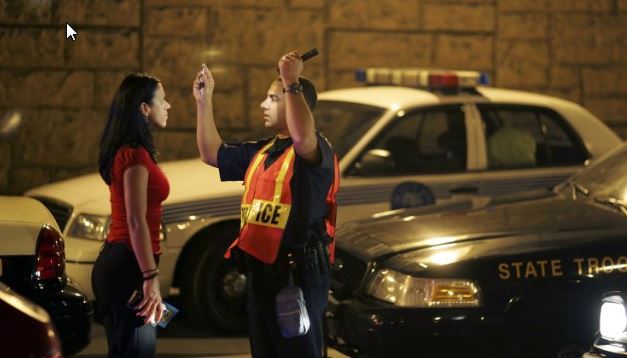
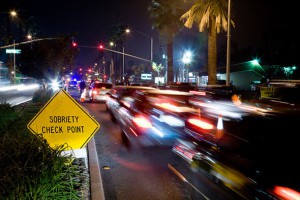 We are approaching summer and with the change in seasons to warmer weather, local law enforcement steps up DUI enforcement. This is especially true with checkpoints across Southern California.
We are approaching summer and with the change in seasons to warmer weather, local law enforcement steps up DUI enforcement. This is especially true with checkpoints across Southern California.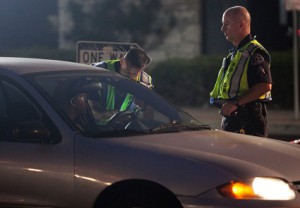 The first thing you should do in this situation is open your window slightly and wait for the law enforcement agent to ask you any questions. As with any routine stop, you are required to provide identifying information such as your name, address, driver’s license and registration. As a general rule, it’s good to have these things organized in advance.
The first thing you should do in this situation is open your window slightly and wait for the law enforcement agent to ask you any questions. As with any routine stop, you are required to provide identifying information such as your name, address, driver’s license and registration. As a general rule, it’s good to have these things organized in advance.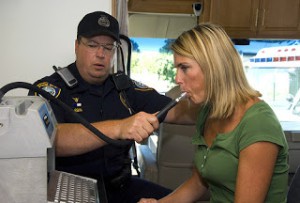 Many agencies use a portable breath test to determine the drivers’ blood alcohol content (BAC) levels. This is called a Preliminary Alcohol Screening Test (PAS). Even though it is a chemical test, it is legally considered to be a Field Sobriety Test. If you are over 21 and are not on probation for a previous DUI, this test is optional. In fact, before the officer administers a PAS test, they must read an admonition to you stating that the test is not mandatory. Because the technology shortcomings of the PAS machine make is susceptible to giving readings that are inaccurate and overly state true alcohol levels, if you’ve had any alcohol at all, especially recent consumption of alcohol, it is best NOT to take this test.
Many agencies use a portable breath test to determine the drivers’ blood alcohol content (BAC) levels. This is called a Preliminary Alcohol Screening Test (PAS). Even though it is a chemical test, it is legally considered to be a Field Sobriety Test. If you are over 21 and are not on probation for a previous DUI, this test is optional. In fact, before the officer administers a PAS test, they must read an admonition to you stating that the test is not mandatory. Because the technology shortcomings of the PAS machine make is susceptible to giving readings that are inaccurate and overly state true alcohol levels, if you’ve had any alcohol at all, especially recent consumption of alcohol, it is best NOT to take this test.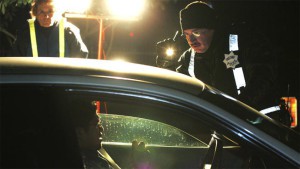 When conducting sobriety checkpoints, police must follow strict guidelines outlined by the U.S. Supreme Court in the landmark case Ingersoll vs. Palmer. If police do not follow the criteria from Ingersoll, the DUI roadblock isn’t lawful. Additionally, any evidence gathered during a drunk driving arrest is possibly not admissible in court.
When conducting sobriety checkpoints, police must follow strict guidelines outlined by the U.S. Supreme Court in the landmark case Ingersoll vs. Palmer. If police do not follow the criteria from Ingersoll, the DUI roadblock isn’t lawful. Additionally, any evidence gathered during a drunk driving arrest is possibly not admissible in court.